Virtua Fighter 5 R: The ONLY Interview
Check out our huge, exclusive interview with SEGA AM2 development boss Makoto Osaki to get the full story on Virtua Fighter 5 Revolution, and various other hot topics.
Page 5
Kikizo: Just as a sidenote, we spoke to the Smash Bros. designer Masahiro Sakurai and he mentioned Virtua Fighter as a specific inspiration when creating the skills and combo attacks for Sonic.
Osaki: Well! That's interesting. Maybe Sakurai-san kindly considered the type of "Sega-style games" as a homage.
Kikizo: There have been a spate of arcade closings in Japan recently. Has this impacted the bottom line of Sega's AM division at all? Do concerns about the health of the arcade industry influence game design at all?
Osaki: Ah, this is difficult... Well, to answer the first part of your question, yes, it did have an impact on us. Regarding the influence it has on our game designs, I think we touched upon this a bit earlier - about how budget and manufacturing costs affect the choice of machine construction and input device. For instance, when we develop new parts for arcade machines, we need to make manufacturing injection-moulds for them. If we produce 1000 machines that use this part, the cost for each is small, but if we make only 100, it's not cost-effective at all. When you have fewer potential buyers, it's already limiting the number of those machines you'd theoretically be able to sell. It makes more sense for us to invest in internet games than "gimmick" machines these days. The cost of server maintenance and upkeep has really decreased over the past few years.
Kikizo: A lot of things seem to have changed the past few years, just a year ago here in Japan the only few people carrying a PSP in public in Japan were the crazy Otaku types but on our way here we saw lots of people playing their PSP on the metro, do you have any idea why that is?
Osaki: Well, the reason why people are playing their PSP more is simple: Monster Hunter came out. [laughs] That game's sold over 2 million copies, making it a genuine hit. The game's been well-accepted by teens and young adults. Even here at Sega, we've got a lot of the younger employees playing during breaks. I think it's part of a trend - in Japan, within the last five years, competitive games have been waning in popularity, while cooperative games have seen a huge upswing.
Kikizo: So, do you still enjoy first-person shooters...
Osaki: Yes. YES. [laughs]
Kikizo: ...and what have you been playing recently?
Osaki: I've been playing Call of Duty 4, actually. Our clan is really strong, one of the best in Japan! We're definitely one of the best 4, at least. [laughs] I really like Battlefield: Bad Company, as well. I've been playing them all on my Xbox 360.
Kikizo: So are you looking forward to Gears of War 2?
Osaki: I can't play that one at home, though. There's kids in the house! It's way too violent! Maybe after they go to sleep.
Kikizo: This is something we noticed when talking with you previously as well as talks we had with several other Japanese developers, the people in Japan who develop videogames love western first person shooters yet for the Japanese public it remains a niche genre. Why do you think Japanese developers enjoy them so much while the people buying games in Japan seem to be uncaring for the genre?
Osaki: I think it's because in foreign markets, FPS games are kind of considered "flagship" titles for demonstrating new technology and the power of the hardware. In Japan's game market, fighting and racing games fall more into this line of thinking. So game companies here naturally want to check the newest FPS games out to see how the technology is being put to use. Stuff like FEAR and STALKER uses a new engine, as does the Unreal series. Plus, most of them are very well developed. Call of Duty 4 in particular is extremely impressive. It has the look and feel of an arcade game in places: it's very speedy and it keeps 60 frames per second. Well, on the 360, anyway. The fact that the game is challenging is good, too. The match recording system in CoD is also excellent - we actually referred to the way it works when making the recording system in the arcade version of VF5.
Kikizo: Well you said CoD4 in places has the look and feel of an arcade game - do you see any correlations between FPS design and fighting game design?
Osaki: That's a strange question. [laughs] I can say some points are quite similar. One thing is sound. Fighting games are very fast-paced, so the moment you land a hit or block, you need some sort of quick audio response to confirm it to the player. The same situation goes in FPS games. Like, when you hit someone at a far distance, you hear a sound confirming your success. When a grenade is thrown, you need to figure out what side of you it's on. You might be able to see it visually, but you can also find it by sound very quickly. In terms of relaying information speedily to the user, I can say FPS game and fighting game design bears a lot of similarities.
Kikizo: You mention you play CoD4 and Bad Company - what other home or portable games have you been playing recently?
Osaki: I've been playing been playing a lot of Poker Smash on XBL arcade. I also really like Rhythm Tengoku Gold on DS. Generally FPS and casual games.
Kikizo: Didn't Sega actually make an arcade version of Rhythm Tengoku in Japan?
Osaki: Yes, we did!
Kikizo: Okay, now for the million-dollar question.
Osaki: Uh oh [laughs]...!

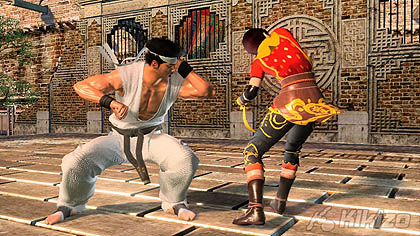
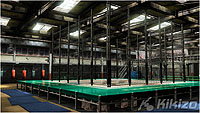
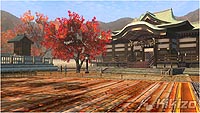

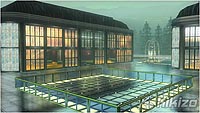
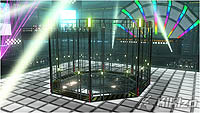
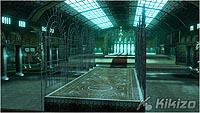
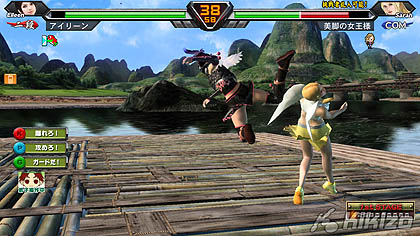
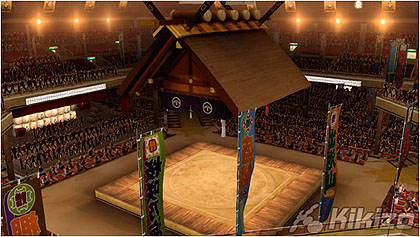




 Satoru Iwata Video Interview - the late Nintendo president spoke with Kikizo in 2004 as 'Nintendo Revolution' loomed.
Satoru Iwata Video Interview - the late Nintendo president spoke with Kikizo in 2004 as 'Nintendo Revolution' loomed. Kaz Hirai Video Interview - the first of Kikizo's interviews with the man who went on to become global head of Sony.
Kaz Hirai Video Interview - the first of Kikizo's interviews with the man who went on to become global head of Sony. Ed Fries Video Interview - one of Xbox's founders discusses an epic journey from Excel to Xbox.
Ed Fries Video Interview - one of Xbox's founders discusses an epic journey from Excel to Xbox. Yu Suzuki, the Kikizo Interview - we spend time with one of gaming's most revered creators.
Yu Suzuki, the Kikizo Interview - we spend time with one of gaming's most revered creators. Tetris - The Making of an Icon: Alexey Pajitnov and Henk Rogers reveal the fascinating story behind Tetris
Tetris - The Making of an Icon: Alexey Pajitnov and Henk Rogers reveal the fascinating story behind Tetris Rare founders, Chris and Tim Stamper - their only interview? Genuinely 'rare' sit down with founders of the legendary studio.
Rare founders, Chris and Tim Stamper - their only interview? Genuinely 'rare' sit down with founders of the legendary studio. The History of First-Person Shooters - a retrospective, from Maze War to Modern Warfare
The History of First-Person Shooters - a retrospective, from Maze War to Modern Warfare